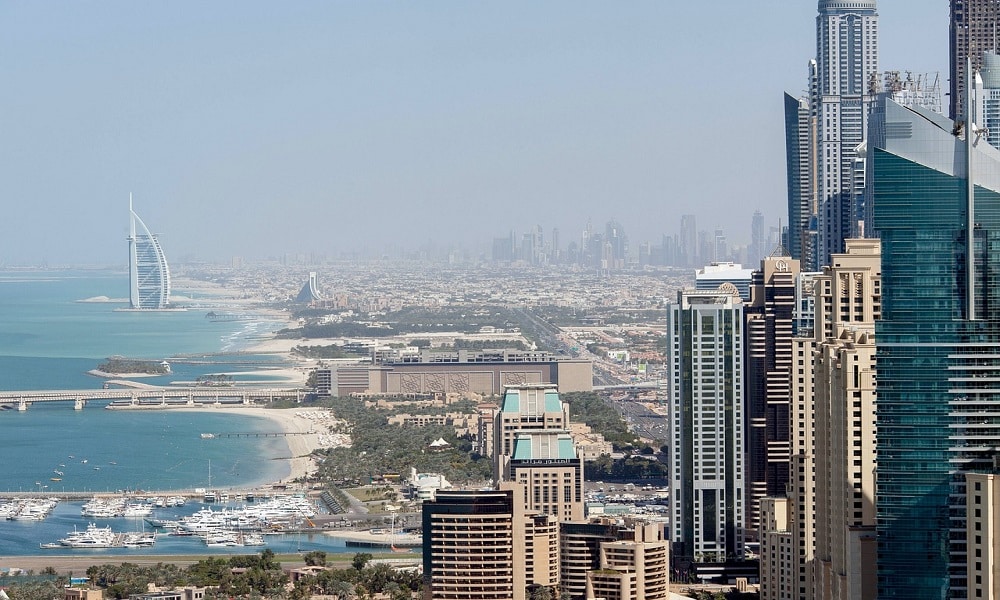Popular among expats from all around the world, Dubai is a dynamic city recognized for its opulent way of life and abundance of possibilities. However, it’s important to consider the living cost in Dubai compared to the United States before deciding whether to move. In order for your move to be as smooth as possible, you can discuss with a local lawyer about the legal requirements of settling in Dubai. This article will look at several facets of Dubai’s living expenses, including accommodation, groceries, utilities, transportation, healthcare, education, entertainment, and more. Comparatively to Americans, these expenses help us to properly determine whether Dubai is really more affordable.
Overview of Living Costs in Dubai
Dubai presents a large spectrum of living situations fit for several budgets. Depending on personal tastes and way of life, the cost of living might differ greatly. We will divide the average monthly expenses into eight basic categories with data from Bayut, an insightful property platform in UAE:
Housing Costs
Usually, the biggest outlay in Dubai is for housing.
- Single Person: Renting a studio apartment is from AED 2,500 (about $680) to AED 4,000 (about $1,090) monthly.
- Couples: A one-bedroom apartment costs AED 2,750 (about $750) to AED 9,000 (about $2,450) monthly.
- Family of Four: Renting a three-bedroom villa costs between AED 8,350 (about $2,270) and AED 15,833 (about $4,300).
In contrast, housing costs in major U.S. cities like New York or San Francisco are significantly higher for similar accommodations.
Grocery Expenses
Dubai’s grocery prices differ depending on shopping habits:
- Single Person: Monthly grocery expenses could be as low as AED 600 (about $163).
- Couples: Couples should budget roughly AED 1,200 (about $327) a month.
- Family of Four: Grocery expenses typically cost AED 2,400 (about $654).
As a result of shipping expenses and levies on imported items, American food prices are often higher than those in other nations.
Utilities
Basic utilities for a 900-square-foot apartment are roughly AED 648 (about $176) in Dubai, which can be less than in many areas of the United States, where utility costs often exceed those in Dubai.
Transportation Costs
Lower gasoline prices and a good public transportation system help to make transportation costs rather reasonable:
- Petrol: Petrol costs about AED 2.82 (about $0.77) per liter.
- Public Transport Pass: Public transportation tickets cost about AED 350 (about $95) monthly.
Transportation costs in major U.S. cities might be greater due to gas prices and parking fees.
Healthcare Costs
Every UAE resident is required to have healthcare:
- Premiums for basic health insurance start at roughly AED 600 (about $163) yearly for basic coverage.
- In comparison to private healthcare options in the US, this is typically cheaper.
Schooling Expenses
When it comes to families with children, the cost of education can be quite substantial:
- International Schools: Yearly tuition fees at international schools might range from AED 48,000 (about $13,068) to AED 114,000 (about $31,037).
- The yearly cost of attending a private American school, on the other hand, can easily exceed $30,000.
Entertainment Costs
Dubai provides a wide variety of entertainment alternatives at prices that are affordable:
- Movie Tickets: The price of movie tickets is approximately AED 45, or $12.
- Dining at Mid-range Restaurants: Two people’s dinner in a mid-range restaurant will cost roughly AED 200 (approximately $54).
Costs like these are often comparable to, or even cheaper than, those seen in a number of cities in the United States.
Conclusion: Is Dubai More Affordable?
When looking at the general cost of living between Dubai and other American regions, it is clear that with its cheaper housing relative to big American cities and reasonable grocery prices when shopping smartly, Dubai is a competitive alternative.
However, many other categories, such as utilities and transportation, tend to favor Dubai as being more budget-friendly overall. This is despite the fact that certain expenses, such as schooling, might be high in both cities depending on the choices that families make.
Whether one finds Dubai more reasonably priced than the United States will ultimately depend mostly on personal lifestyle choices and financial situation; nevertheless, for many expatriates looking for a dynamic lifestyle with many possibilities at reasonable prices, Dubai remains a desirable choice worth looking at.
Frequently Asked Questions
Q1. What are the job opportunities in Dubai for expatriates?
A: Dubai’s varied employment market provides expatriates in many fields, including banking, technology, hospitality, and healthcare, with lots of possibilities. The city draws experienced experts from all around the world, and many businesses offer competitive pay together with perks such as health insurance and housing allowances.
Q2. Is it easy to obtain a visa for living and working in Dubai?
A: For expatriates with job offers from local businesses, specifically, getting a visa to live and work in Dubai is rather easy. Employers usually sponsor work visas that can lead to resident permits. For individuals wishing to launch their own companies, there also are choices for investment visas and freelance visas. However, during the application procedure, it is essential to satisfy particular criteria and submit the required documentation.
Q3. How does the cost of living in Dubai compare to other cities in the UAE?
A: Although Dubai is among the more costly cities in the United Arab Emirates, it has a broad spectrum of living choices that would meet different budgets. Although Emirates like Abu Dhabi and Sharjah could have cheaper accommodation, Dubai usually offers more facilities and employment possibilities. Although some expenses could be more in Dubai, for many inhabitants the quality of life and accessible facilities usually make the expenses justified.


